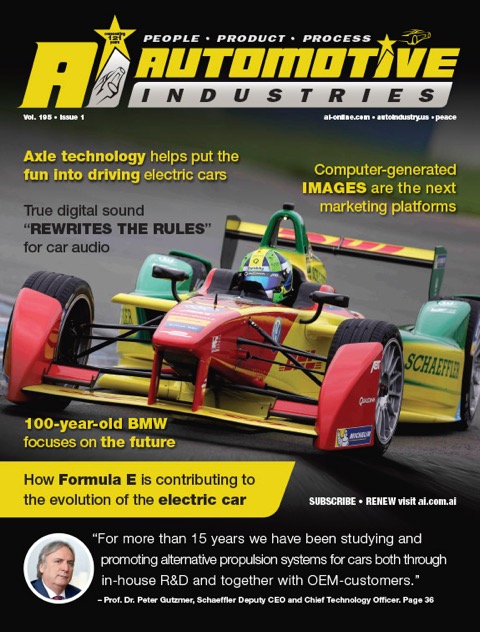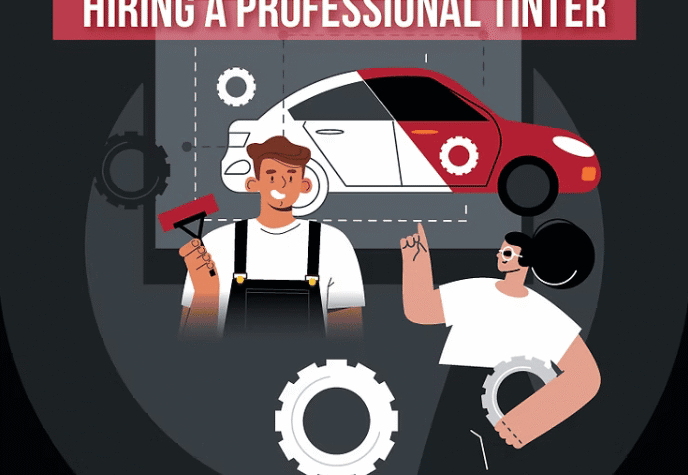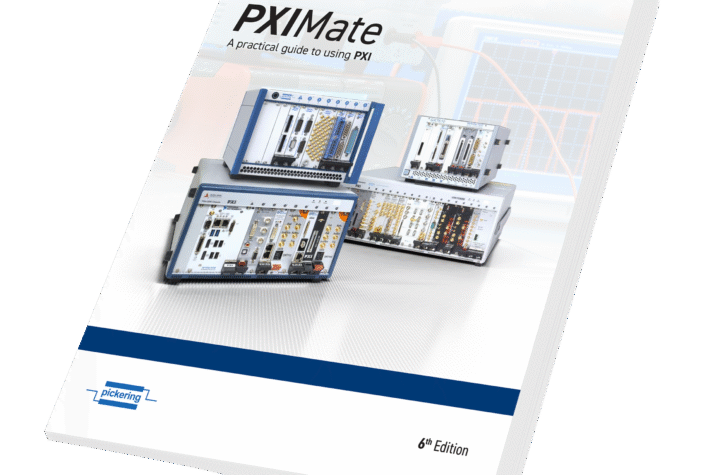
September 2014 marked the start of a new era in motor racing, when 20 all-electric racing cars lined up on the grid for the inaugural Beijing ePrix.
With names like Senna, Prost and Piquet behind the wheel and teams such as Andretti, ABT Schaeffler Audi Sport, Renault and Virgin Racing and team owners like Leonardo DiCaprio, the championship was off to a flying start.
For season one, all the teams used the same car and powertrain. The cars remained the same for season two, but the powertrain technology is no longer standardized. Seven manufacturers have produced new motor, invertor and gearbox solutions, with Formula E inspiring development in electric car technology. Among the leaders is Schaeffler, which is the technology partner in the ABT Schaeffler Audi Sport Team. A new generation of the Formula E car, called “ABT Schaeffler FE 01” successfully completed its testing in the middle of June 2015 in southern Germany. Further test runs were completed in Italy, Hungary, Germany and Great Britain while four chassis were built at ABT Sportsline in Kempten, Germany. The ABT Schaeffler team was one of the first to have its own car ready for the start of the new season in October 2015.
Automotive Industries (AI) asked Prof. Dr. Peter Gutzmer, Deputy CEO and Chief Technology Officer of Schaeffler, what contribution the company has made to the increasingly successful Formula E series.
Gutzmer: Schaeffler has started a new chapter in its long and successful history in motorsport. As the exclusive technology partner to the ABT Schaeffler Audi Sport team, the company has taken the lead to develop the complete power train and its integration in the electric Formula E car ABT Schaeffler FE01, and will continue to improve this system in following seasons. Our involvement with Formula E puts us in an ideal position to set the standard and to learn about electric powertrains with respect to efficiency, thermal management, drivability and gearbox functionality while operating under extreme conditions. Our engineers have to push the envelope and beat the competition – both in product and system competence in this motor sport arena. Schaeffler has been the only strategic partner of the so far single German Formula E team ABT-Schaeffler-Audi from the very beginning. And it needs to be mentioned that we are so far very impressed by the success and growing attendance of this innovative new motorsports event.
AI: You have said in the past that hybrids and electrical vehicles will have to play a growing role in transportation – please expand.
Gutzmer: Electric mobility as a whole, which includes hybrid solutions and electric driving, will largely determine the future of mobility. Due to more stringent awareness on environmental issues and therefore increasingly stringent emissions regulations and governmental activities, but also increasing demands on individual mobility with further growing volumes will change cars, trucks and business models worldwide completely. Therefore, a global fleet of newly introduced vehicles cannot be imagined without electrification by a growing number of hybrid and pure electric vehicles, regardless of whether they are used for private or commercial purposes. We expect electric vehicles to make up 20% of new cars built around the world in 2020. By 2030 at the latest we see around 10 million vehicles being annually built with all-electric drives and another 50 million cars as hybrid or plug-in hybrid solutions.
Together with automated driving and connectivity technologies, the electrification of the powertrain will be the focus area in automotive business.
AI: What role do you see Schaeffler playing in promoting hybrid and electrical drives?
Gutzmer: Schaeffler as a prominent supplier and development partner to this industry worldwide will continue to deliver solutions to meet the requirements using an already well-proven global and holistic approach that can hardly be matched by any other company. We optimize our solutions based on deep product knowledge, process and manufacturing competence on combustion engines, all kinds of transmissions and electric drives.
For more than 15 years we have been studying and promoting alternative propulsion systems for cars both through in-house R& and together with OEM-customers. Through this we have developed a broad system and component knowledge on all types of hybrid and electric drivetrain solutions. Our current focus is on Platforms with P2 Modules and E-Axles – both for different voltage ranges, which will give us a very promising entry in this fast-growing already very competitive challenging field.
AI: How will your company’s P2 high-voltage hybrid module change the face of alternatively fueled vehicles?
Gutzmer: Solutions with alternative fuel like LPG, CNG or even artificial fuel will continue to be offered and further developed as additional sources of energy for the traditional combustion engine. Our P2-Hybrid module offers the opportunity to work together with any kind of combustion engine to improve fuel consumption and emission by recuperation, boosting, sailing and pure electric driving ability, depending on the energy rating of the battery.
AI: When do you see the product being rolled out commercially?
Gutzmer: Series production is planned within the next two to three years. AI: Which manufacturers have evinced an interest in the new hybrid module?
We are in discussion with all important OEMs in the market, namely Germany, US, Japan and China.
AI: Tell us a little about the P2 hybrid module that has been developed specifically for the American market – what changes needed to be made and when will it hit US roads?
Gutzmer: It is a little difficult to talk about this solution at this point in time. One special feature is that the module is including the torque converter for drivability reasons. So in combination with our latest high feature iTC torque converter technology we are able to offer a very attractive hybrid module solution in terms of overall package, functionality and most importantly cost. And, by the way, this development was mainly driven by our US competence center












More Stories
Professional vs. DIY Tinting: What You Should Know
New updated edition of “PXIMate” reference guide for T&M engineers available from Pickering Interfaces
5 Mistakes That Can Ruin Your Car Accident Claim